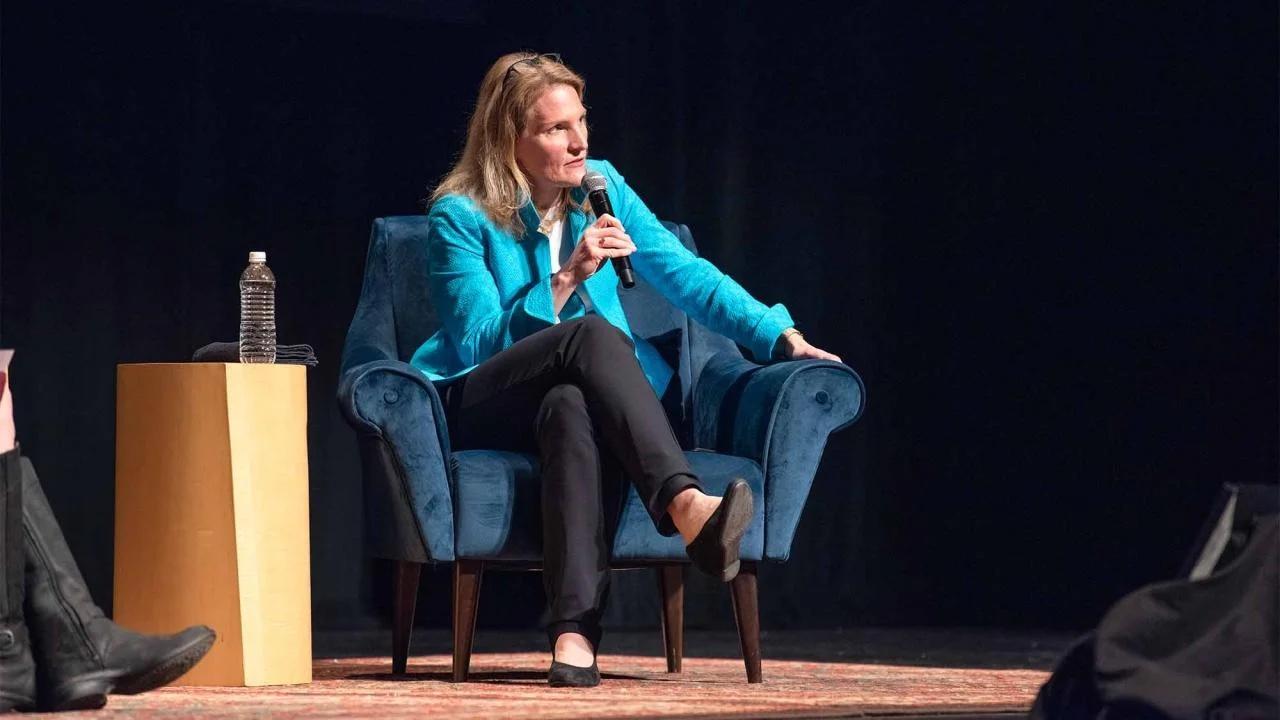
A Book to Combat Extremism at Home
Campus Community Book Project Author’s Talk Centers on Hate
Quick Summary
- Author visit caps year of DEI book-project programming
- ‘Hate in the Homeland’ centers on the ways extremist beliefs are cultivated
- More education is key to rejecting hateful propaganda, author says
In front of a Mondavi Center crowd in early February 2024, author Cynthia Miller-Idriss identified two recent moments — the mid-2000s in Germany and the global rise of social media in the later 2010s — as inflection points for new far-right attempts at youth radicalization and recruitment. This included far-right clothing outfits with a “more mainstream appearance” that marked “the legality of toeing the line” of acceptable speech in German society, including clothes featuring modifications of banned words, like the deletion of their vowels or formatting them within popular motifs like the logo of the hip-hop group Run-DMC. These provocations forced governments to answer the question Miller-Idriss posed to the campus audience: “Is it still a far-right symbol if nobody recognizes it?”
In a digital, mobile-first world, using tools like social media to make far-right content more mainstream puts democracies like the United States at risk. In the wake of a decentralized but increasingly violent far-right risk, recognizing extremist symbology, according to Miller-Idriss, is a crucial step towards combating it and fighting instead for a democratic society.

Book project selection
The Mondavi Center hosted Miller-Idriss on Feb. 5. She is an expert on identifying and combating extremism worldwide, and her book, Hate in the Homeland: The New Global Far Right, was the 2023-24 selection for the UC Davis Campus Community Book Project.
The project was created in 2002 by the Office of Campus and Community Relations, a unit now in the Office of Diversity, Equity and Inclusion, to promote dialogue and build community by encouraging diverse members of the campus and surrounding communities to read the same book and attend related events. A volunteer committee of students, staff, faculty and community members considered more than 60 book nominations. The office’s website notes that Hate in the Homeland “shifts the conversation about radicalization from the how and why to the when and where, to the life stages and places where extremist beliefs are cultivated and socialized.”
Miller-Idriss is a professor in the School of Public Affairs and in the School of Education at the American University in Washington, D.C. The university houses the Polarization and Extremism Research and Innovation Lab, of which Miller-Idriss is the founding director. She regularly testifies before Congress and briefs policy, security, education and intelligence agencies on trends in domestic violent extremism and strategies for prevention and disengagement.
